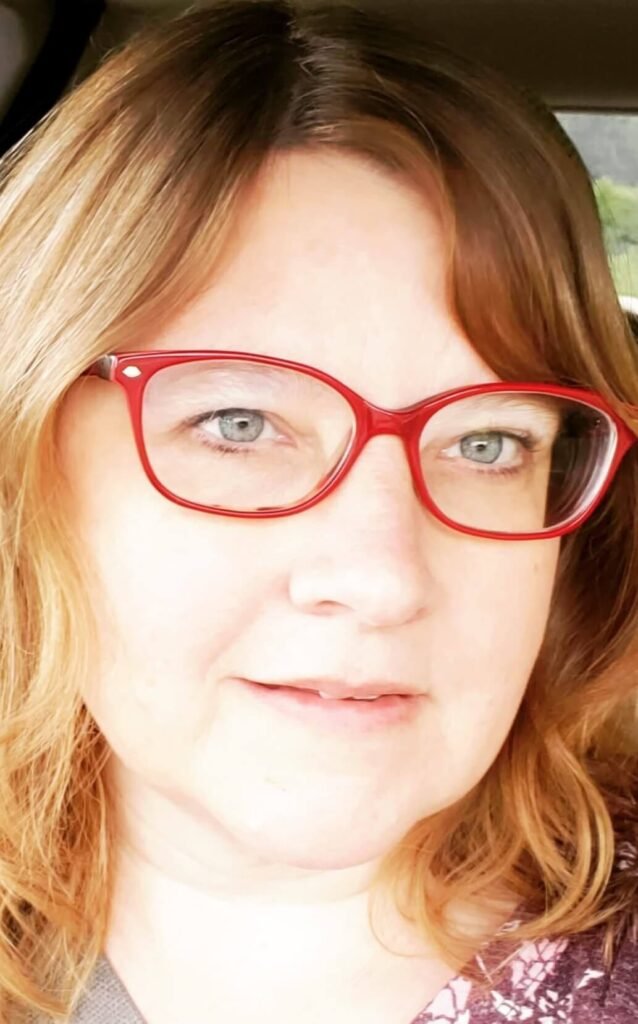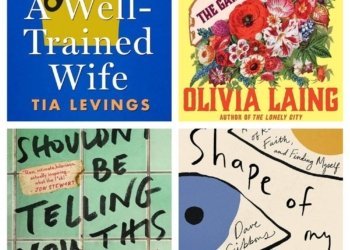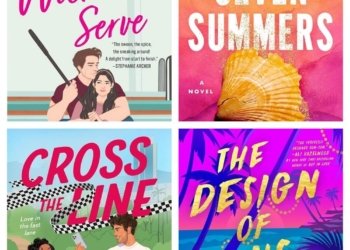No products in the cart.
A Conversation with Julianne Munich, a Historical Fantasy Author
Julianne Munich is the author of historical fantasy and contemporary romance. As a child, she enjoyed reading anything by Roald Dahl, Alice in Wonderland, and a big hardcover collection of Disney stories taken from the movies.
111
SHARES1.5k
VIEWSJulianne Munich, author of “Mages in the Mundane” series, lives with her husband and son in the small town of Hayward, Wisconsin. A former pre-K teacher and wife of an Army veteran, she raised 3 amazing kids. Two grown daughters—a registered nurse and a marine biologist, and her teenage son, an Eagle Scout and honor student. Her family enjoys kayaking on nearby Lake Superior. She loves books, writing, photography, music, and movies.
Her community draws tourists and athletes from all around the world, with its world-class ski race, the American Birkebeiner. Her husband has skied the race many times, though Julianne herself is an admitted klutz on a pair of skis. She’s an admitted klutz in almost everything. Even her county fair prize-winning cookies came with a history of burnt fingers. She enjoys binging Netflix, nature photography, baking, and most of all, reading books and writing stories of her own.
Let’s get started with a quick rapid fire.

Q1. If you could be transformed into one mythological creature, which one would you choose?
A Pegasus, because they’re so regal and beautiful, and I’d be able to see a bird’s eye view of any city as I flew over it.
Q2. What time do you usually go to bed at night?
Around 11:00 pm. Sometimes I’m super tired and might fall asleep at 10.
Q3. What are the least-likely three words someone would use to describe you?
Organized, aggressive, confident.
Q4. Where did you go on your last vacation?
Charleston, South Carolina. I loved it! My favorite was visiting Fort Sumter, the historical buildings, and taking a carriage ghost tour.
Q5. Would you rather find your dream job or win the lottery? You can’t do both.
Find my dream job.
Q6. What is one thing you regret spending money on?
I once bought into a sales MLM which made me feel pressured to sell a product and membership to friends. Never again.
Q7. What object do you misplace or lose the most?
My phone.
Q8. If you were a spy, what would be your codename?
“Ope-gonna-squeeze-right-past-ya” or “Ope” for short. Because I’m from Wisconsin. (the northern Midwest dialect!) 🙂
Q9. What secret about the universe would you most want to learn?
If there really are forms of intelligent life elsewhere in the universe.
Q10. What never fails to make you laugh?
My husband.
Q11. What was one “before” and “after” in your life?
Before December 30, 1997, and after. That was the day my first child was born and I became a mom. Being a mom was the best thing that ever happened to me.
Q12. What do you think people misunderstand about you?
I have most of the symptoms of inattentive ADHD. It wasn’t something that affected me as a child because I was quiet, well-read, and made good grades in school. But with nearly every job I’ve ever worked- retail, teaching, clerical- I’d been labeled as scatterbrained, a ditz, ‘not a team player’, ‘not willing to listen’, and even lazy. It was very difficult for me to fit in.
It’s time for a more detailed conversation, Julianne.
You’ve answered our rapid fire so well, Julianne. Now, it’s time for our readers to know more about the person behind the book.
Q. Tell us about your journey.
I’ve always loved to write and create, from the time I was a little girl. I had extreme obsessions with my favorite shows on TV and books, and would spend hours in my room drawing my favorite characters and making up stories about them. Now, I realize what I did as a child would now be called fanart and fanfiction! I was ahead of my time, I guess! In high school, I was able to ace every creative writing assignment as I struggled with most other subjects. In college, I wrote short stories for fun, printing them out on a dot-matrix printer (it was circa 1990) and sharing them with my friends.
As a young married mom, I finally had my own computer and Internet. This was a blessing for me as a hobby writer, because I was able to take my old short stories and poems and publish them online. Of course, I also discovered fanfiction websites and wrote tons of stories, both shorts and novellas, most of them related to Disney movies and my lifelong favorite TV shows. It wasn’t until I was in my mid-40s that I was finally inspired to write my own original full novels. My first original novel was a small-town contemporary romance titled ‘The Cedar Chest.’ Then, I decided to take one of my Disney’s ‘Beauty and the Beast’ fanfiction stories, change ‘Belle and the Beast’ to my own original characters, change the plot, and re-craft it into a full fairytale fantasy novel meant for an adult audience. That novel led into a sequel, which soon became ‘Mages in the Mundane,’ my first published trilogy!
Q. So, what books have you read more than once in your life?
All of JK Rowling’s ‘Harry Potter’ series, a few of CS Lewis’ ‘Chronicles of Narnia’, and I re-read Laura Ingalls Wilder’s ‘Little House’ series and ‘Charlotte’s Web’ to my own children, because they were my own childhood favorites.
Q. Interesting. Who has been the biggest supporter of your writing?
My online friends who have been my beta readers and ‘fans’ during every step of my writing. If I were to pick one person, I’d pick my friend Trudi in Brooklyn, NY, who was one of my original fanfiction beta readers.
Q. Do you hide any secrets in your books that only a few people will find?
Yes. I’ve taken details from the very last scene in ‘The Frosted Roses’ and used those details as foreshadowing for a new project. My working title for my new manuscript is ‘Miss Phoebe and the Silver Daggers.’ It will be a romantic fantasy taking place in Regency England.


Q. Now comes the most anticipated question that every author must answer. How do you process and deal with negative book reviews?
I use them as critique to make my writing better. In fact, I used one review of my first book to go back and re-edit parts, since Amazon’s KDP program allows an indie author to revise a book after publishing. I’ve also taken courses in story-structure and pacing, which I’m definitely utilizing in my latest works.
Q. What comes first for you — the plot or the characters — and why?
The characters. For me, the characters MUST feel ‘real’ to me before I can take them through a plot. It’s their LIVES! I can’t just draw out some plot–with challenges and bad things happening– and put these people through it, without knowing who these people are and how they would handle it. (Yes I feel strongly about my characters. They are my babies!)
Q. How do you develop your plot and characters?
My plot is… well, honestly I have started out as a pantser and am getting better at outlining a plot before drafting. It’s more of taking a flashlight in the dark, with my characters guiding where that flashlight is going to go. My characters? I honestly don’t know. They come to me. In ‘Mages’ I wrote a guy who was *supposed* to be the jerk villain, who was going to be defeated and killed by the heroes at the end, but he demanded he wanted to be a turncoat hero and not a villain. My own ‘Anakin Skywalker.’ And so he was! 🙂
Q. You got 100 points. You need to divide them on the basis of how relevant and important they are to you as a reader and a writer for your book or someone else’s as a reader. Your options are Plot/Story, Book Cover, Marketing, and, Reviews.
50 percent Plot/Story, 20 percent Dialogues, 20 percent Cover, 5 percent Marketing, and 5 percent Reviews.

Q. So, now, about your book. Talk to us about it. No major spoilers.
There have been magical people throughout human history who hide their powers, running around in plain sight of regular humans.
Some of their inherent gifts and powers are deadly. Some are healing and life-giving.
People with deadly powers could be kind and good at heart. People with healing powers often had moral flaws.
Once upon a time, in 18th-century France, a young woman with healing powers escaped her restrictive community and became a maid in the palace of an arrogant prince. Falling in love with him was a crime against her people. Her heart was broken. She suffered dire consequences. She gave birth to a son from that relationship, who did not inherit her magical powers.
“Mages in the Mundane” is the story of that woman, her son, and her family.
Q. What part of the book did you enjoy the most while writing?
In ‘The Reborn Prince’ I loved it when Luc and Emilie finally got real about their feelings for each other. It was magical! 🙂
Q. What is your kryptonite as a writer?
Time limits. I could never write on a schedule with a deadline.
Q. Would you and your main character get along in real life?
I would hope so. I’d get along with all of them, I think, except for the ‘big bad.’ Nobody wants to hang out with the ‘big bad.’
Q. What is your writing process like? Are you more of a plotter or a pantser?
Pantser, definitely! Though I’m trying to use both methods, most of the time it falls to pantsing.
Q. Let’s talk about the process of writing. Do you do research while writing a book to add more authenticity? What kind of research?
Yes! I Google a lot about historical accuracy and rely on my beta readers who might know more about a historical period, or another language when I sprinkle foreign words in my books.
Q. What was your hardest scene to write?
The battle scenes in ‘The Frosted Roses.’ I had never written a final fantasy battle scene. It needed to be action packed and chaotic, switching POVs so events could be seen from different angles. I worked with a great beta reader to sort it out into something that could be easy to follow.
Q. Well, this has been great. Now, before we wrap this up, do you have any suggestions to help someone become a better writer? If so, what are they?
Know your characters. Make notes about them. It’s silly, but give them personality tests like the Myers-Briggs or sort them in Hogwarts. It helps to plot when you know what makes them tick. Also, try to get inside that character’s head for their point of view, using all 5 senses, to show not tell. There should be as little ‘narrator telling the reader what the character does and feels’ as possible. It’s OK to start a chapter with the camera zoomed out a little, but make sure that camera gets moved close-up as soon as possible. Make sure your reader feels ‘inside’ a person’s head and not floating above like a football-game commentator. You must make your reader feel like they are the football players, not the commentator.
Related Posts
A Conversation with Nina Schuyler, a Short Stories Author
Nina Schuyler teaches creative writing at Stanford Continuing Studies, The Writing Salon, and for the independent bookstore, Book Passage. She...
10 Most Anticipated Nonfiction and Memoirs of Summer 2024
There's a glimpse of long, languid days ahead, with the sun warming our faces already. And new summer novels are...
10 Must-Read Books of Summer 2024
Summer is here, so those who are seeking for something to read indoors, at the pool, or on the beach are...
8 Most Anticipated Romance Novels of Summer 2024
Who says romance is reserved for Valentine's Day? Love stories are a treat to be savored year-round. Do you yearn...
About Us

Trenzle
Where Trends are made and discovered
Trenzle is your official source of discovering the latest people, work, and ideas that deserve to trend. Discover Authors and their books, Creators and their work, People and their opinions, and Stories from around the globe.
Learn more
Latest Posts
10 Best AI Tools You Should Use in 2024
July 20, 2024
Categories
© 2023 Trenzle - Online Author News & Magazine









